Baby farming involved poor mothers giving their infants up or adoption with the hope they would find a better life. Guest writer NICOLA CARPENTER explains some of these babies found anything but a happy home…
Chances are if one of your ancestors was born illegitimately in the Victorian or Edwardian eras, then you are very lucky to be here. The natural infant mortality rate was high enough, without the help of the baby farmers.
Many Victorian and Edwardian women who gave birth out of wedlock had little choice but to ‘farm’ their babies out to women advertising their services as childcarers for a weekly fee or adoption representatives for a one-off charge. Their fees weren’t cheap, but with no welfare system save the workhouse or starving on the streets the baby farmers made a killing, in more ways than one.
The Brixton Baby Farmer
Margaret Waters (1835 – Hanged 1870)
Margaret Waters, born in 1835, was the first convicted baby farmer to be hanged in England by William Calcraft at Surrey Country Goal on October 11th 1870.
Margaret turned to baby farming in 1864 after the death of her husband to make ends meet.
She started advertising in The Clerkenwell News for babies to ‘adopt’ for the sum of £10 supposedly passing them on to foster homes, who also advertised for babies to adopt for a fee in the local papers. Margaret would then pocket the difference.
She soon found it more profitable to dispose of the babies in her care.
It was far easier to drug the babies with opiates, which suppressed their appetites leaving them to slowly starve.
Five babies were to die in her care of diarrhoea, wasting and convulsions.
However, Margaret is suspected of murdering up to 19 infants.
Margaret would then wrap their frail bodies in brown paper before dumping them on the streets – a common sight in Victorian Britain due to the high cost of burial.
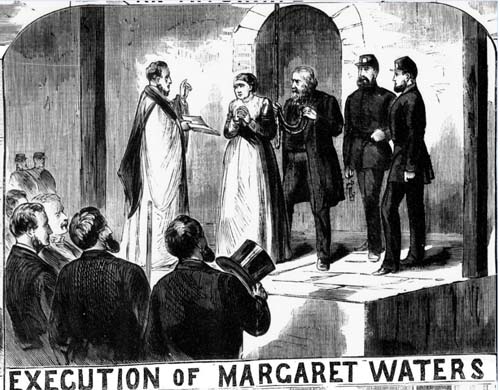
Eventually, Margaret was arrested and tried for the wilful murder of John Walter Cowen, the illegitimate son of 16-year-old Janet Tassie Cowen.
The arresting police officer wrote of his findings at Margaret’s house: “Some half-dozen little infants lay together on a sofa, filthy, starving, and stupefied by laudanum.”
Margaret Waters may have been the first to hang for baby farming, but she certainly wasn’t the last. Rhoda Willis, or as she was known, tried and convicted as, Leslie James, has that honour.
The Cardiff Killer
Rhoda Willis (aka Leslie James) (1867 – Hanged 1907)
Rhoda Willis, born Rhoda Leselles in 1867 in Sunderland, was the last convicted baby farmer to be hanged in Wales at Cardiff Prison on 14th August 1907, her 44th birthday, by brothers Henry and Thomas Pierrepoint.
Rhoda had placed an advert in The Evening Press “married couple” and “Christian people” looking for a baby to adopt.
That advertisement was answered by a Lydia English.
Lydia’s sister Maude Treasure was already an unmarried mother and now had another baby on the way, she was desperate.
The sisters agreed with Rhoda, or Mrs James as they knew her, that she would take the baby as soon as it was born and give it a comfortable life, something Maude could not.
Baby Treasure was born on the 3rd June 1907 and a telegram was duly sent out to Mrs James, who met the sisters at Hengoed station on 4th June.
Baby Treasure and the pre-arranged £8 adoption fee were handed over and Rhoda wrote them a receipt.
Later that day, Rhoda arrived back at her lodgings at Portmanmoor Road, Cardiff (seen in the photograph), much the worse for drink.
It was upon helping her to bed that her landlady Mrs Wilson discovered a bundle at the foot of the bed, which she described in her words as, “feeling like meat.”
The bundle was opened to reveal the twisted and lifeless naked body of a female infant.
Mrs Wilson sent for the police and Rhoda was arrested and charged with murder.
An examination found that the child had been dead for between 12 and 24 hours and had died from asphyxiation, possibly from smothering under thick clothing with more than ordinary pressure applied.
It took the jury only 12 minutes to find Leslie James guilty of wilful murder, yet she continued to protest her innocence. That was until the evening before her execution, when she confessed to her solicitor Mr Lloyd that not only was her real name Rhoda Willis, but that:
“I wish to tell you that I cannot go to my death with a clear conscience without telling you that I willfully killed the child. I killed it in the train between Llanishen and Cardiff. A sudden temptation came over me, and I could not resist it. I particularly want those who tried me, and especially the judge, to know that I was quite guilty, as I should not like to die with any possible chance of them thinking that I was innocent. It has been a great comfort to me to tell you this, and I can now die with a clear conscience”.
For more creepy topics from Berkshire’s NICOLA CARPENTER, you can read her blog titled Herding Cats here.


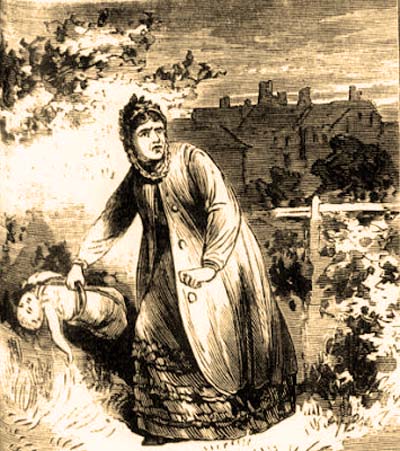
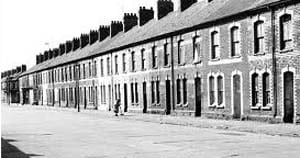
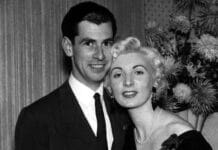


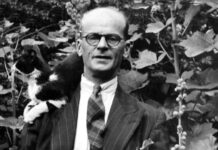


That was a fascinating read. I watched a documentary about Amelia Dyer a month or so ago and that was the first I’d heard of the baby farmers, other than a mention in Ghostwatch about how their house was on the site of a notorious baby farmer. What a gruesome part of our past.
Farming babies in this fashion is a waste of time and resources. I much prefer Jonathan Swift’s idea.
.
Creepy stuff and a great article! I’d never heard of baby farming before. Guess the Victorian era wasn’t all pretty dresses and titled personage.